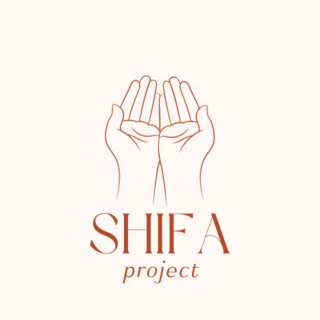Talk to someone now. Call our Navigator on +61472668010 Mon-Fri 9am-5pm or Click here for urgent help
CMW stands in solidarity with the Palestinian people in their pursuit of fundamental rights, justice, and a peaceful resolution to the longstanding Israeli-Palestinian conflict. We believe in the importance of upholding the principles of international law, human rights, and the right to self-determination for all peoples.
To address the psycho-spiritual needs of Muslims affected by the news and sentiments surrounding the situations in Palestine and Gaza and provide spaces for discussion and healing. We are excited to launch the “Shifa Project” a sanctuary for healing, coping, connection, and support. Derived from Al-Shifa Hospital, a beacon of resilience and hope in Gaza providing healing and safety, the name “Shifa” embodies both physical healing and the deeper, spiritual tranquillity that so many seek during these challenging times.
The Shifa project is a collaboration between Muslim Mental Health Organisations and practitioners in NSW and Victoria.
We hope as the “Shifa Project” grows it will help to foster a sense of community, understanding, and renewed faith.
You can access the Shifa Project using the following links below:
Website: www.shifaproject.org.au or click on the image below: 
We strive to be a source of support, healing, understanding, and compassion for those affected by these global events. By taking proactive steps to care for the mental well-being of our community, we can build a stronger, more resilient community that thrives, even in the face of adversity.
For our communities experiencing distress or being directly affected by ongoing events, we propose the following recommendations:
- Seek Professional Help: If you are experiencing significant psychological distress, it is advisable to seek support from a qualified mental health professional.
- Support Groups: Consider joining support groups or therapy groups specifically tailored to individuals who have experienced trauma. Sharing your experiences with others who can relate can be comforting and provide a sense of community.
- Self-Care: Prioritise self-care practices, including adequate sleep, nutrition, and regular physical activity. Engaging in relaxation techniques like deep breathing, mindfulness, or meditation can also help alleviate stress.
- Maintain Social Connections: Stay connected with friends and loved ones. Isolation can exacerbate feelings of distress. Talking to supportive people in your life can provide emotional relief.
- Express Emotions: It’s essential to find healthy ways to express your emotions. Journaling, art, or creative outlets can serve as therapeutic means of processing your feelings and experiences.
- Limit Exposure to Traumatic Media: While staying informed is important, excessive exposure to traumatic news and images can worsen distress. Set boundaries on media consumption and give yourself permission to take breaks.
- Routine and Structure: Creating and maintaining a daily routine can provide a sense of stability and predictability, which can be comforting during times of uncertainty.
- Mindfulness and Grounding Techniques: Learn and practice mindfulness and grounding techniques to help manage intrusive thoughts and flashbacks. These techniques can anchor you in the present moment.
- Connect with Cultural and Spiritual Resources: Drawing strength from cultural and spiritual beliefs and practices can be empowering. Engaging in activities that align with your cultural or spiritual background can provide a sense of connection and purpose.
- Children and Adolescents: If you have children or adolescents in your care, be attentive to their emotional needs. Encourage open dialogue, and age-appropriate discussions, and ensure they have access to child and adolescent mental health services when necessary.


